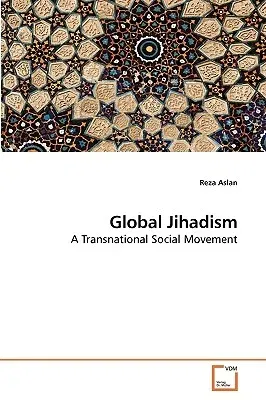Reza Aslan
(Author)Global JihadismPaperback, 30 April 2010

Qty
1
Turbo
Ships in 2 - 3 days
In Stock
Free Delivery
Cash on Delivery
15 Days
Free Returns
Secure Checkout
Print Length
156 pages
Language
English
Publisher
VDM Verlag
Date Published
30 Apr 2010
ISBN-10
3639250060
ISBN-13
9783639250060
Description
Product Details
Author:
Book Format:
Paperback
Country of Origin:
US
Date Published:
30 April 2010
Dimensions:
22.86 x
15.24 x
0.91 cm
ISBN-10:
3639250060
ISBN-13:
9783639250060
Language:
English
Location:
Saarbrucken
Pages:
156
Publisher:
Weight:
235.87 gm

